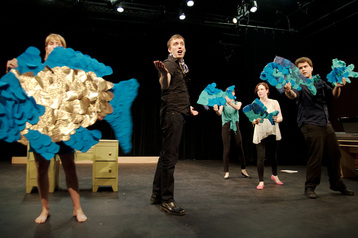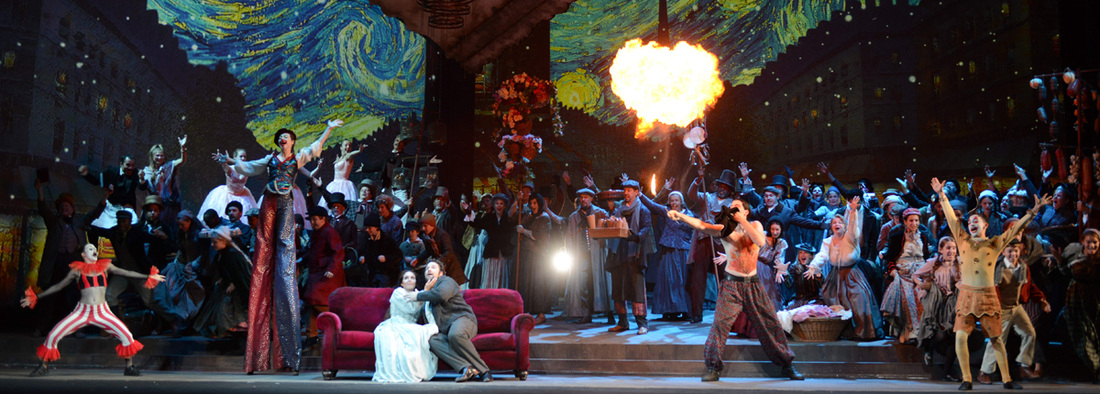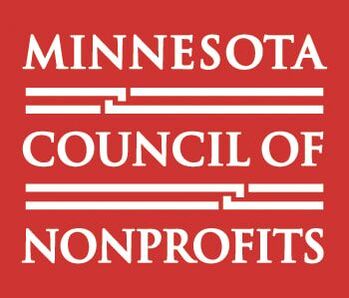|
Here in Minneapolis, we are working away to expand and explore the story of THE GOLDEN CARP with our presentation coming up next week. In another season in the not-so-distant future, this story will find it's full life as a chamber opera, so I talked withcreator and project leader Candy Bilyk out in California. We talked about opera, what it means to her, and how it will allow this story to be expressed. /Blake
(Please note: the upcoming workshop of THE GOLDEN CARP will be acted, but not sung. Join us now for the story; stay tuned for the future full opera!)
There's a lot of dissension about what separates opera from music-theater in particular, because they are so closely related. Musicals are a child of operettas, and the operetta is really seen as a particular style of light opera. But broadly speaking, an opera has wall-to-wall music, all the words are sung, and the music has prominence as the most "important" element in the production. Musicals contain songs as well as considerable spoken dialogue, and the words and story are more important than the music or at least equally so.
BB: How did your interest in opera begin? What are some elements of the form that you particularly appreciate? CB: When I was in high school, my orchestra took a field trip to see a final dress rehearsal of Turandot, performed by the Minnesota Opera. It sounds corny, but I just fell in love. Some people are really into movies with visual overload, like Moulin Rouge. Opera is like the aural equivalent of that to me. When I sat in that audience I felt like I was surrounded and inundated by sound; it wrapped around me and I was inside the music. That is what I love most about opera. Since then I've also played in opera pits many times, and it is my favorite thing by far to play.  The carp (Evan Boyce) sings The carp (Evan Boyce) singshis own praises at Savage Umbrella's Night of New Works last summer.
BB: How does working on an opera differ from your other experiences in music-theater?
CB: Well, really the biggest difference for me is that I'm the driving force on this project. In all the other music-theater pieces I've done, the idea was generated by someone else and the music was designed to serve the story and a particular purpose that was markedly subservient to everything else going on and could have been written by other people. But things like the rehearsal process are all really similar, it's just that opera is all music and musicals usually have less music and more speaking and blocking. The only real difference I've experienced as a violist is that in musicals we have less music to play, and the viola parts are frequently pretty boring and easy. I've never played ballet music outside of the concert hall or written for ballet, so I can't speak to that experience. BB: How do you think the form helps to tell the story of THE GOLDEN CARP? CB: That's a good question. I've heard opinions from other people about this, like opera is somehow the most unrealistic art form and therefore a fantastical world is more accepted in it. I disagree with that, but maybe there's something to it in the collective consciousness. I just really wanted to make it an opera. I partially wrote a short story several years ago about a fairy and a fish (which barely resembles the story today), and the more I revised and added to it, the more crazy duets and arias started popping into my mind. But I think any story can work in multiple forms, this is just the way I'm excited about telling it. It could be a really cool stage play if told differently. Comments are closed.
|
Archives
November 2020
|


 RSS Feed
RSS Feed




